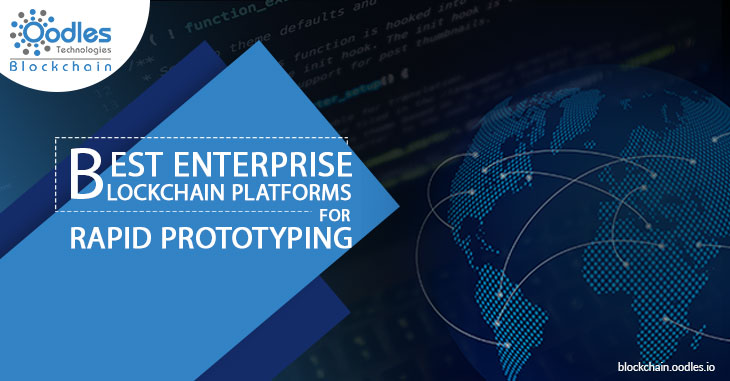-
Today, we'll be taking a thorough look at top 3 platforms for blockchain development, namely: Ethereum, Hyperledger Fabric, R3 Corda, Ripple, and Quorum. Bitcoin is not on the list. In fact, it doesn't even make it to the list of top 10 blockchain development frameworks when it's about developing enterprise application of Blockchain.
Top 3 Blockchain Development Framework:
Ethereum:
Ethereum is a blockchain development platform that enables blockchain developers to write and distribute next-generation decentralized applications. -Vitalik Buterin, Co-Founder, Ethereum
Ethereum is one the most suitable blockchain platforms available at present. It's being used widely across multiple industry use-cases because of its robust smart contracting functionality and flexibility. As a matter of fact, it has the most number of use-cases available currently. Along with Hyperledger Fabric, Ethereum is developing a large digital support community as well as delivering frequent product updates and improvements.
In spite of its adoption on a larger scale in enterprise use-cases, it's important to know that Ethereum is basically a permissionless (or public) blockchain platform designed for mass consumption against limited access. Being a POW (proof-of-work) based platform, it's not the fastest as well as is an energy sucker. However, it's expected that the community is working to change its consensus algorithms to quick PoS (proof-of-stake) in future versions.
Hyperledger Fabric:
Hyperledger is a B2B centric Blockchain Module hosted by the Linux Foundation launched in 2016. It's an open-source collaborative project to propel cross-industry blockchain technological solutions. Its key goal is to develop codebases and enterprise-grade distributed database frameworks.
Currently, Hyperledger brags about 185+ collaborating enterprises across various industries such as finance, banking, supply chain management, Internet of Things (IoT), technology and manufacturing.
Hyperledger project is a unique blockchain framework that offers enterprise-grade solutions. Given its modular architecture, it enables plug-and-play components around membership services and consensus. Recently, Hyperledger Fabric 1.0 got launched, which claims to be production-ready for enterprises.
Here's an article that'll help you comprehend the basics of Hyperledger Framework. Hyperledger: Causing The Paradigm Shift In Business World
R3 Corda.
It's a sort of new operating system for financial services.
Launched in 2015, R3 is a consortium consisting of some of the world's prominent financial organizations that have developed an open-source distributed database platform named Corda. Initially, designed with banking in mind, Corda's other use cases in the supply chain, trade finance, healthcare, and government are still emerging. There is no underlying cryptocurrency or built-in token for Corda. It basically limits data access within a clause to those entitled to it, instead of restricting the entire network. It has become popular because of it consensus system that takes into account the task of managing intricate financial clauses. Also, it's known for providing interoperability ease of integration with legacy systems.

Our Offices
INDIA
Emaar Digital Greens, Sector 61,
Gurugram, Haryana
122011.
Welldone Tech Park,
Sector 48, Sohna road,
Gurugram, Haryana
122018.














